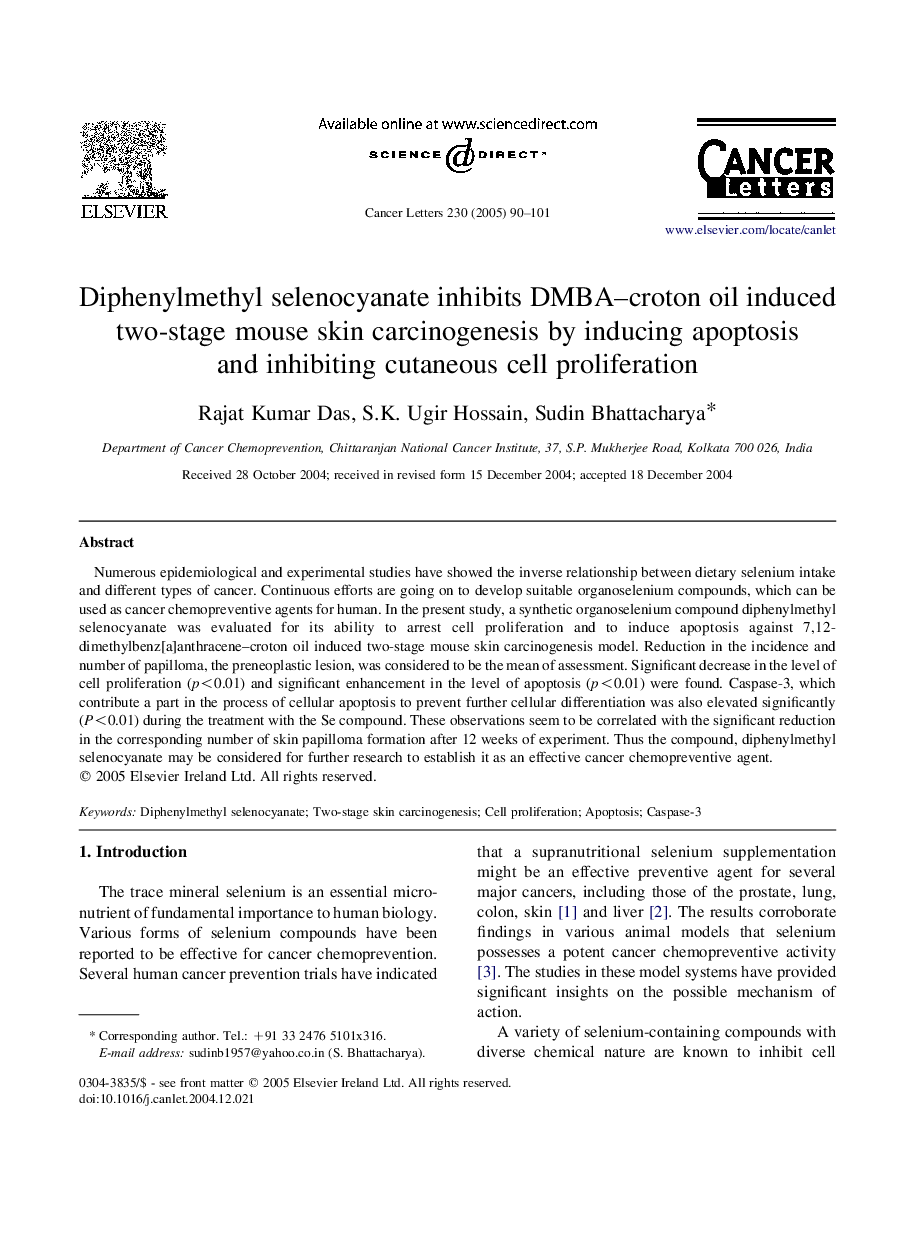| Article ID | Journal | Published Year | Pages | File Type |
|---|---|---|---|---|
| 10900142 | Cancer Letters | 2005 | 12 Pages |
Abstract
Numerous epidemiological and experimental studies have showed the inverse relationship between dietary selenium intake and different types of cancer. Continuous efforts are going on to develop suitable organoselenium compounds, which can be used as cancer chemopreventive agents for human. In the present study, a synthetic organoselenium compound diphenylmethyl selenocyanate was evaluated for its ability to arrest cell proliferation and to induce apoptosis against 7,12-dimethylbenz[a]anthracene-croton oil induced two-stage mouse skin carcinogenesis model. Reduction in the incidence and number of papilloma, the preneoplastic lesion, was considered to be the mean of assessment. Significant decrease in the level of cell proliferation (p<0.01) and significant enhancement in the level of apoptosis (p<0.01) were found. Caspase-3, which contribute a part in the process of cellular apoptosis to prevent further cellular differentiation was also elevated significantly (P<0.01) during the treatment with the Se compound. These observations seem to be correlated with the significant reduction in the corresponding number of skin papilloma formation after 12 weeks of experiment. Thus the compound, diphenylmethyl selenocyanate may be considered for further research to establish it as an effective cancer chemopreventive agent.
Keywords
Related Topics
Life Sciences
Biochemistry, Genetics and Molecular Biology
Cancer Research
Authors
Rajat Kumar Das, S.K. Ugir Hossain, Sudin Bhattacharya,
